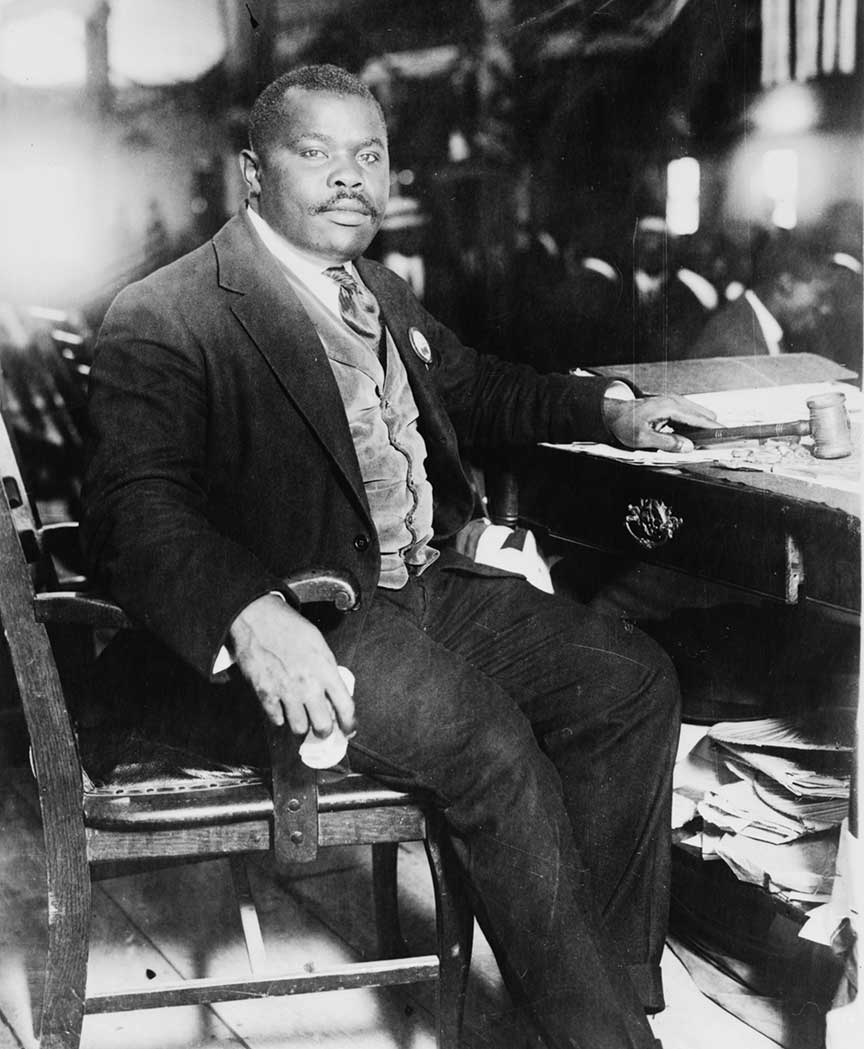1920 Universal Negro Improvement Association

Marcus Garvey
On August 1-2, 1920, the national convention of the Universal Negro Improvement Association met in New York. Its leader was Marcus Garvey. Over 25,000 Blacks attended a rally held at Madison Square Garden. Garvey was an advocate of Black Nationalism. His form of Black Nationalism included a call for a return to Africa.
On August 1-2, 1920, a momentous event took place in New York City that would leave a lasting impact on the African American community and the broader struggle for racial equality. The national convention of the Universal Negro Improvement Association (UNIA) convened, drawing an unprecedented crowd of over 25,000 Black individuals to Madison Square Garden. This gathering was not only a demonstration of unity and strength but also a platform for the articulation of a powerful vision for the future, championed by the charismatic and controversial leader, Marcus Garvey.
Marcus Garvey, born in Jamaica in 1887, was a passionate advocate for Black Nationalism, a philosophy that emphasized the need for economic independence, self-reliance, and the reclamation of African heritage and identity. Garvey’s vision extended beyond the borders of any single country; he sought to unite all people of African descent across the globe under a common cause. His message resonated deeply with those who attended the 1920 convention, many of whom were drawn to his call for a return to Africa, a central tenet of his ideology.
Garvey’s advocacy for a return to Africa was rooted in the belief that people of African descent would never achieve true freedom and equality in the Western world, which was dominated by systemic racism and white supremacy. He argued that African Americans and other members of the African diaspora should seek to establish a new, independent nation in Africa where they could live free from oppression. This idea, while controversial, tapped into a profound sense of dislocation and longing for a homeland that had been stripped from generations of Black people through the horrors of slavery and colonialism.
The convention at Madison Square Garden was a grand affair, featuring speeches, parades, and cultural displays that celebrated Black heritage and achievements. The atmosphere was charged with a sense of purpose and possibility. Garvey, dressed in elaborate military regalia, delivered a series of impassioned speeches that electrified the audience. He spoke of the need for Black people to take pride in their heritage and to work collectively towards economic self-sufficiency and political empowerment.
Garvey’s message was encapsulated in the slogan of the UNIA: “One God! One Aim! One Destiny!” This call to unity was a direct challenge to the prevailing social order and an affirmation of the dignity and potential of Black people everywhere. The convention adopted the Declaration of Rights of the Negro Peoples of the World, which outlined the UNIA’s vision for racial justice and equality. This document called for the end of racial discrimination, the promotion of Black education and culture, and the establishment of an independent African nation.
One of Garvey’s most ambitious projects was the Black Star Line, a shipping company intended to facilitate commerce and transportation between Africa, the Caribbean, and the Americas. The Black Star Line symbolized Garvey’s commitment to economic independence and his vision of a global Black economy. Although the venture ultimately failed due to financial mismanagement and sabotage, it remains a powerful symbol of Garvey’s determination to create a self-sustaining Black enterprise.
Despite the challenges and controversies that surrounded Garvey and the UNIA, the 1920 convention marked a high point in the history of Black Nationalism. It demonstrated the capacity of Black people to organize and mobilize on a massive scale, and it articulated a vision of racial pride and self-determination that continues to inspire movements for racial justice today.
Garvey’s influence extended beyond the immediate outcomes of the convention. His ideas about Black self-reliance and Pan-Africanism would later influence other prominent leaders and movements, including the Civil Rights Movement of the 1950s and 1960s and the Black Power movement of the 1970s. Figures such as Malcolm X and Martin Luther King Jr. acknowledged Garvey’s impact on their thinking and strategies.
 >
>